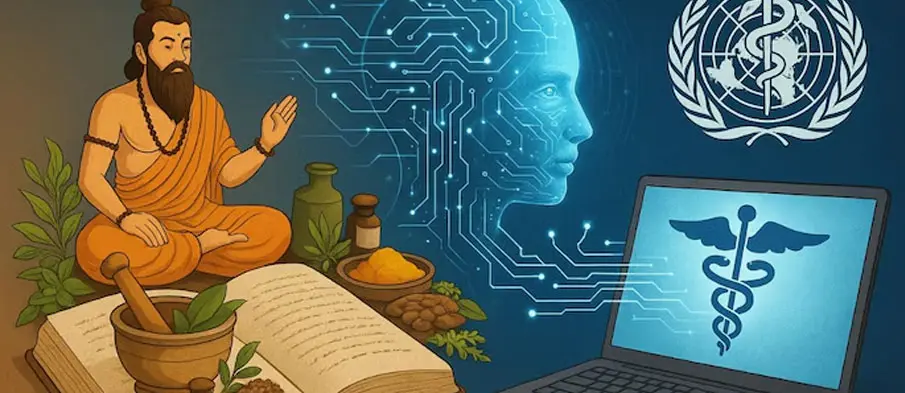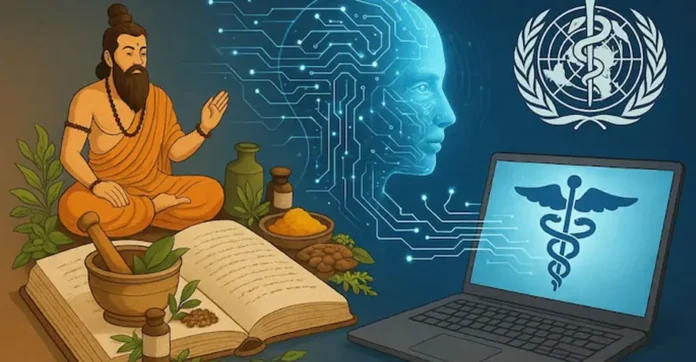
In a groundbreaking development, India has become the first country in the world to digitise its traditional medicine systems using Artificial Intelligence (AI). This significant achievement aims to both preserve and protect age-old Indian health systems like Ayurveda, Unani, and Siddha, integrating them with modern digital tools for global accessibility and recognition.
The initiative is powered by an upgraded version of the Traditional Knowledge Digital Library (TKDL) and supported by the World Health Organization (WHO) and the Ministry of Ayush. This AI-driven platform leverages machine learning algorithms to organise complex formulations, identify patterns, and correlate traditional remedies with contemporary medical conditions.
The digital transformation is more than just a conservation effort—it is also a protective measure against bio-piracy. In past decades, numerous foreign corporations had secured patents on herbal remedies that had long been used in Indian households. By translating ancient knowledge into multiple languages and codifying it, TKDL now acts as a global patent reference database, ensuring that such traditional treatments are recognised and cannot be misappropriated.
The WHO praised the move, calling it a “significant global step toward integrating traditional and modern medicine systems.”
Union Minister Prataprao Jadhav echoed this sentiment, stating the project reflects a “larger vision to make Indian systems more accessible,” aligning with Prime Minister Narendra Modi’s advocacy for “AI for all.”
Emerging innovations such as Ayurgenomics—which combines genetic science with Ayurveda’s prakriti (body constitution)—and AI-enabled pulse and tongue diagnostics are just the beginning of how India is merging centuries-old medical wisdom with modern scientific advancements.
With countries like China, Indonesia, and South Korea also boasting deep-rooted traditional medicine systems, India’s AI-powered approach could serve as a global template for integrating heritage with future-ready healthcare. The TKDL initiative stands as more than a digital archive; it’s a bold, visionary model for the future of healthcare and cultural preservation worldwide.





